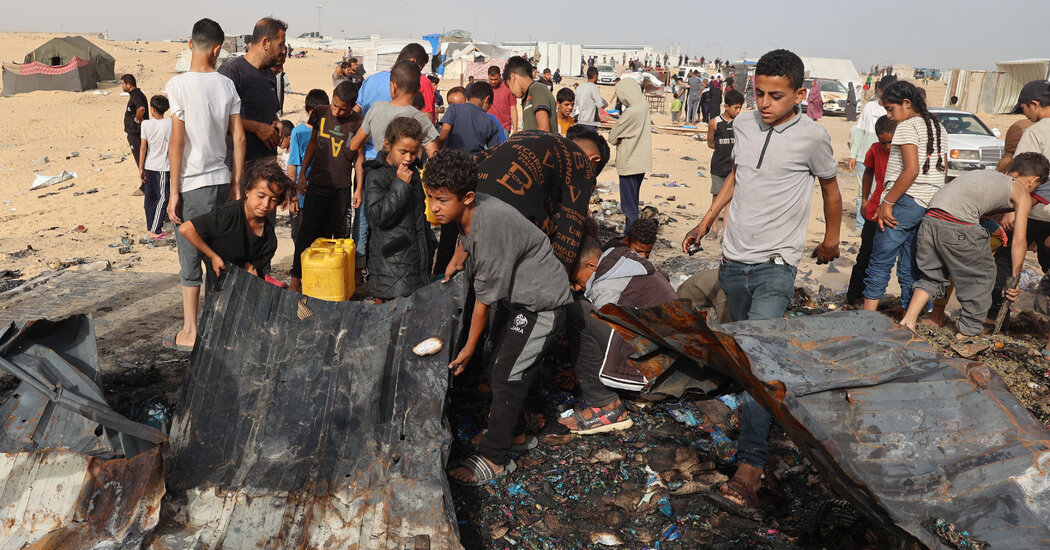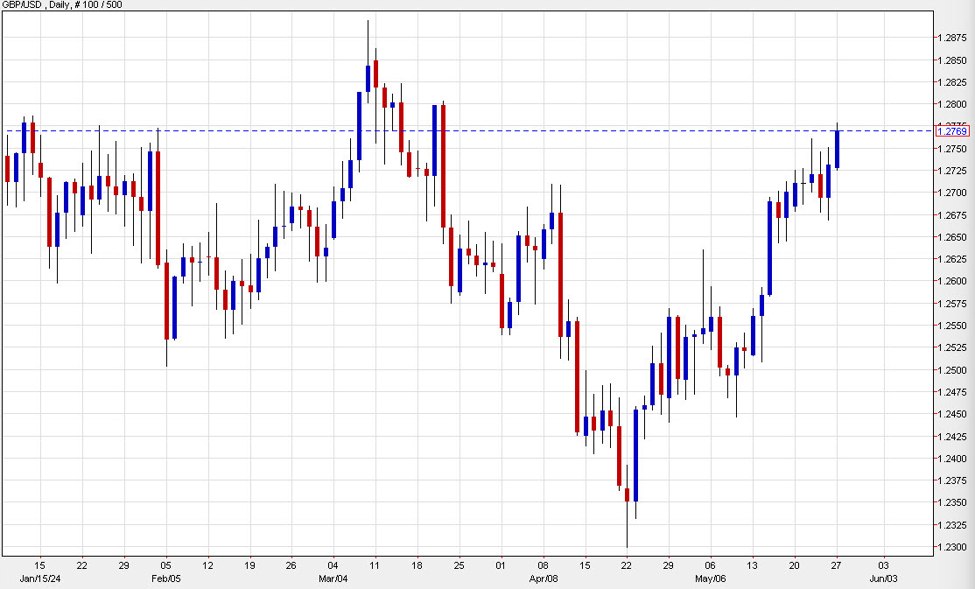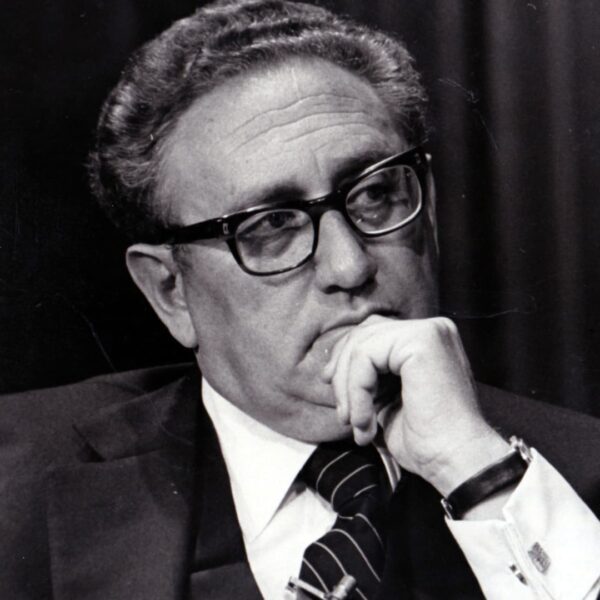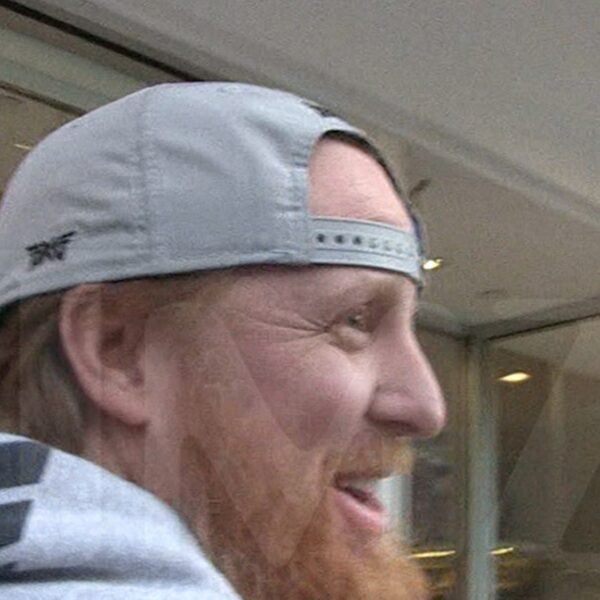With international condemnation mounting, Prime Minister Benjamin Netanyahu of Israel said Monday that the killing of dozens of people in a camp for displaced Palestinians in Rafah was “a tragic accident,” but gave no sign of curbing the Israeli offensive there.
His comments came at a particularly delicate time, just three days after the International Court of Justice appeared to order Israel to immediately halt its offensive in the city and as diplomats were aiming to restart negotiations for a cease-fire and hostage release deal between Israel and Hamas at some point in the next week.
The International Court of Justice appeared to order Israel on Friday to suspend its military offensive and “any other action” in Rafah that might wholly or partly destroy the Palestinian population there. Some of the court’s judges said that Israel could still conduct some military operations in Rafah under the terms of their decision.
Israel said the strike on Sunday night killed two Hamas officials, but the civilian deaths generated instant condemnation, likely making it harder for Israel to defend its view that the ambiguity of the court order allowed it to continue its campaign in Rafah.
President Emmanuel Macron of France said on Monday that he was “outraged” by the airstrike in Rafah, adding that these operations “must stop.”
Mr. Netanyahu said in a speech to the Israeli Parliament that Israel tried to minimize civilian deaths by asking Gazans to evacuate, but “despite our supreme effort not to harm uninvolved civilians, a tragic accident occurred to our regret last night.” He accused Hamas of hiding among the general population, saying, “For us, every uninvolved civilian who is hurt is a tragedy. For Hamas it’s a strategy. That’s the whole difference.”
The military said the target of the strike on Sunday was a Hamas compound, adding that “precise munitions” were used to eliminate a Hamas commander and another senior Hamas official at the site.
But at least 45 people were killed by the blast and subsequent fires, according to the Gaza health ministry, including 23 women, children and older people. The ministry said that 249 people were wounded.
An Israeli official, speaking on condition of anonymity to discuss a sensitive matter, said on Monday that an initial investigation by the military had concluded that the strike, or shrapnel from it, may have unexpectedly ignited a flammable substance at the site. Eyewitnesses described intense fires in the aftermath of the strike.
The Israeli military said in a statement on Monday that it had taken a number of steps before the strike to reduce the risk of harming uninvolved civilians, including conducting aerial surveillance and using precise munitions. “Based on these measures, it was assessed that there would be no expected harm to uninvolved civilians,” the military said.
Military drone footage of the attack, reviewed by The New York Times, showed the munition striking an area housing several large cabinlike structures and parked cars.
Two Israeli officials said that the strike took place outside the designated humanitarian zone that was supposed to offer safe refuge to residents being told to evacuate to get out of harm’s way. The military produced a map showing what it said was the location of the strike in relation to the designated humanitarian area.
The military named the two targets of the strike as Yassin Rabia, the commander of Hamas’s leadership in the occupied West Bank, and Khaled Nagar, a senior official in the same wing of the group. The military said the West Bank wing was responsible for planning, funding and carrying out terrorist attacks throughout the West Bank and within Israel.
In a statement, Hamas described the Israeli strike on Rafah as “a horrific war crime” and demanded the “immediate and urgent implementation” of the World Court’s decision. The group did not refer to the Israeli military’s assertions about the two Hamas officials who were the targets of the strike.
The strike occurred in Tal as Sultan in northwest Rafah, according to the military. Israeli ground troops have so far been operating in southeast Rafah, and in the narrow corridor along the Egyptian border.
The order issued on Friday by the court, an arm of the United Nations, in The Hague came as part of a case brought by South Africa accusing Israel of committing genocide in Gaza. It called on Israel to immediately halt any actions in Rafah, “which may inflict upon the Palestinian group in Gaza conditions of life that would bring about its physical destruction in whole and in part.”
Israeli officials have argued that the 13-2 ruling allowed it to continue fighting in Rafah on grounds that Israel had not, and would not, inflict such conditions on Palestinians.
But even some of Israel’s allies do not view the order that way. Germany’s vice chancellor, Robert Habeck, said on Saturday that Israel’s offensive in Rafah was “incompatible with international law.”
Patrick Kingsley, Myra Noveck and Johnatan Reiss contributed reporting.















